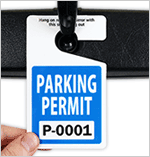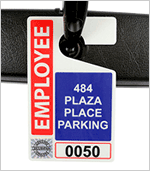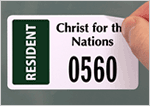When parking systems fail
Professionals cite technological innovations as a key trend in the parking industry, but residents of Honolulu, Reno, and Arlington County, Virginia, may beg to differ. The local governments of each were recently required to replace or retire elements of their parking system, though the components were intended to improve upon outmoded technologies.

Honolulu is on a small island. No one should be shocked that on-street parking is in demand. From billsophoto.
The Department of Transportation Services in Honolulu, for example, announced that the pay-by-phone feature of the city’s smart parking meters will be suspended beginning September 15. The feature, which requires significant battery power for its cellular data transmission, places too heavy a burden on the meters, which are powered by small solar panels and batteries. The operational issues they were causing will hopefully be alleviated by the feature’s suspension.
The suspension comes little more than a year after the meters’ installation in the city’s downtown, Chinatown, and Civic Center areas, but residents may not even notice the change. Less than 1 percent of all smart meter transactions had been conducted by phone; the majority of payments came via coins and credit cards.
In Reno, coins have become the only way to pay for parking spaces around the Washoe County Courthouse and St. Mary’s Regional Medical Center there. In July, the city substituted the digital parking kiosk system it had installed in those areas just two years ago with the coin-based parking meters that the kiosks originally replaced.

Reno is another city that’s been forced to revert to a less sophisticated parking system because of technical glitches. From Owens Valley Desert Rat.
The kiosks, which were supposed to accept electronic forms of payment, suffered multiple failures, making it impossible for Reno to collect parking fees. The city lost more than $800,000 in revenue as a result.
In Arlington County, Virginia, it’s not the local government that’s losing money, but one of its vendors. EPark Systems, creator of prepaid parking meter device iPark, declared bankruptcy last week. Now users will find it impossible to reload their iParks. Any balance loaded on the devices may, however, still be used to pay for parking, said county officials. Once balances drop to zero, though, users will again have to pay for parking with coins or credit cards.
Arlington County officials realize that iPark broadened payment options for residents. “I still think there’s a demand for something like it,” Carla de la Pava, Arlington’s chief deputy treasurer, told the Washington Post last week. “People who use them love them, and we want to meet their needs.” The county is researching alternatives.
The travails of Arlington County, Honolulu, and Reno offer a cautionary tale for the many cities—Charlotte, NC; Lincoln, NE; and Spokane, WA, among them—planning to test or install smart parking meters. Already Wichita, KS, where local officials installed smart parking meters during a three-month test project, had to pull the meters two weeks early in July due to complaints from the public.
Wichita’s experience and the growing number of cities with similar results may dampen the enthusiasm of professionals in the parking industry. Although motorists now choose from a greater array of payment methods, the life cycle of the new machines is unknown, and installing them can prove a costly experiment.
Related Posts
Category: Municipal, Parking, Parking management





















